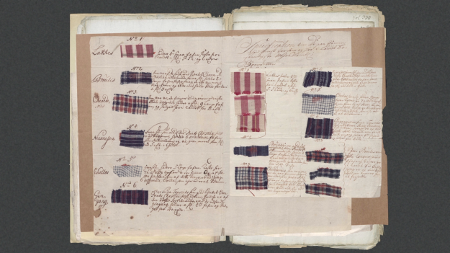Archives That Matter
Digital infrastructures for sharing unshared histories in European colonial archives
2017 marked the centennial for Denmark’s sale of the colony “The Danish West Indies” to The United States, today the US Virgin Islands. For this occasion, The Danish National Archive, The Royal Danish Library’s Photo and Map Collection, as well as other archives and collections in Denmark, undertook a mass-digitisation of their archival records from St. Croix, St. Thomas, St. John, Ghana and the transatlantic enslavement trade. The National Archive alone has scanned more than 1.2 kilometres of shelf space, adding up to more than 5 million digital scans. The records are said to be among the best preserved from the transatlantic enslavement trade and many are included on UNESCO’s world heritage list. After the sale, the archives were relocated to Denmark, leaving the inhabitants of the US Virgin Islands without access to approximately 250 years of their history.
While mass-digitisation of archival records carries a promise of free circulation, distribution and easier access to the archives, they also give rise to new ethical, political, aesthetic and methodological questions concerning the re-use and dissemination of this highly sensitive material. The symposium Archives that Matter hopes to contribute to this necessary field of interest and lay the groundwork for new best practices for the construction of shared public digital heritage infrastructures that go beyond national and colonial boundaries.

European colonial histories still tend to be written and discussed within the framework of methodological nationalism. The reasons for this tendency to discuss colonial histories in line with national histories are many, but the historical organization of colonial archives is one of them, as Lisa Lowe has recently argued. In The Intimacy of Four Continents (2015), Lowe points out the importance of working across national archives – and thus also in between different European languages – when working with European colonial history that was – and remains – entangled across borders. While digitization opens up to new ways of working with colonial archives, and thus new modes of knowledge production, they also give rise to new ethical, political and methodological questions. This seminar seeks to counter the disconnection between European colonial histories by bringing together a diverse range of archivists, digital humanists and researchers.
Archives that Matter is in particular devoted to exploring what stories lie untold in the masses of digitized material. What overlooked narratives are yet to be explored and what happens when we gather scholars and artists to unearth the digital vaults. The symposium asks: What are the new sites of forgetfulness and unspeakability created by the digitization of the colonial archives? How do the digital archives extend the ramifications of the racial and colonial structures today? How to account for and transmit the viscerality of the archive (touch, smell, taste, pain & violence) in the digital files? And how to create shared infrastructures for re-use of the archival material that fosters radical, creative, decolonial and technological collaborations across communities?
The symposium brings together artists and researchers to collaboratively reflect on these questions in a workshop-like setting that aims to innovate and develop “critical fabulations”, transgressive decolonial methodologies and to create novel research and artistic work in the archives. Methods that will help shed light on the concern of reuse of digital colonial records and to create best practices for future engagements. With Archives that Matter we thus hope to critically shape emerging regimes of knowledge within the current turn to digitisation of cultural heritage.
Information
Detailed programme with titles and abstracts will be announced soon.
Limited seats are available, to sign up for the symposium please write katrinedh@gmail.com no later than January 23, 2018.
The Symposium is organised by Katrine Dirckinck-Holmfeld, Nanna Bonde Thylstrup and Daniela Agostinho as part of The Uncertain Archives Research Group, University of Copenhagen and The Royal Danish Academy of Fine Arts in collaboration with The Royal Danish Library.
The symposium is kindly supported by DARIAH-EU: Digital Research Infrastructure for the Arts & Humanities, CEMES: Centre for Modern European Studies, The Past’s Future at the University of Copenhagen & The Royal Danish Academy of Fine Arts.
